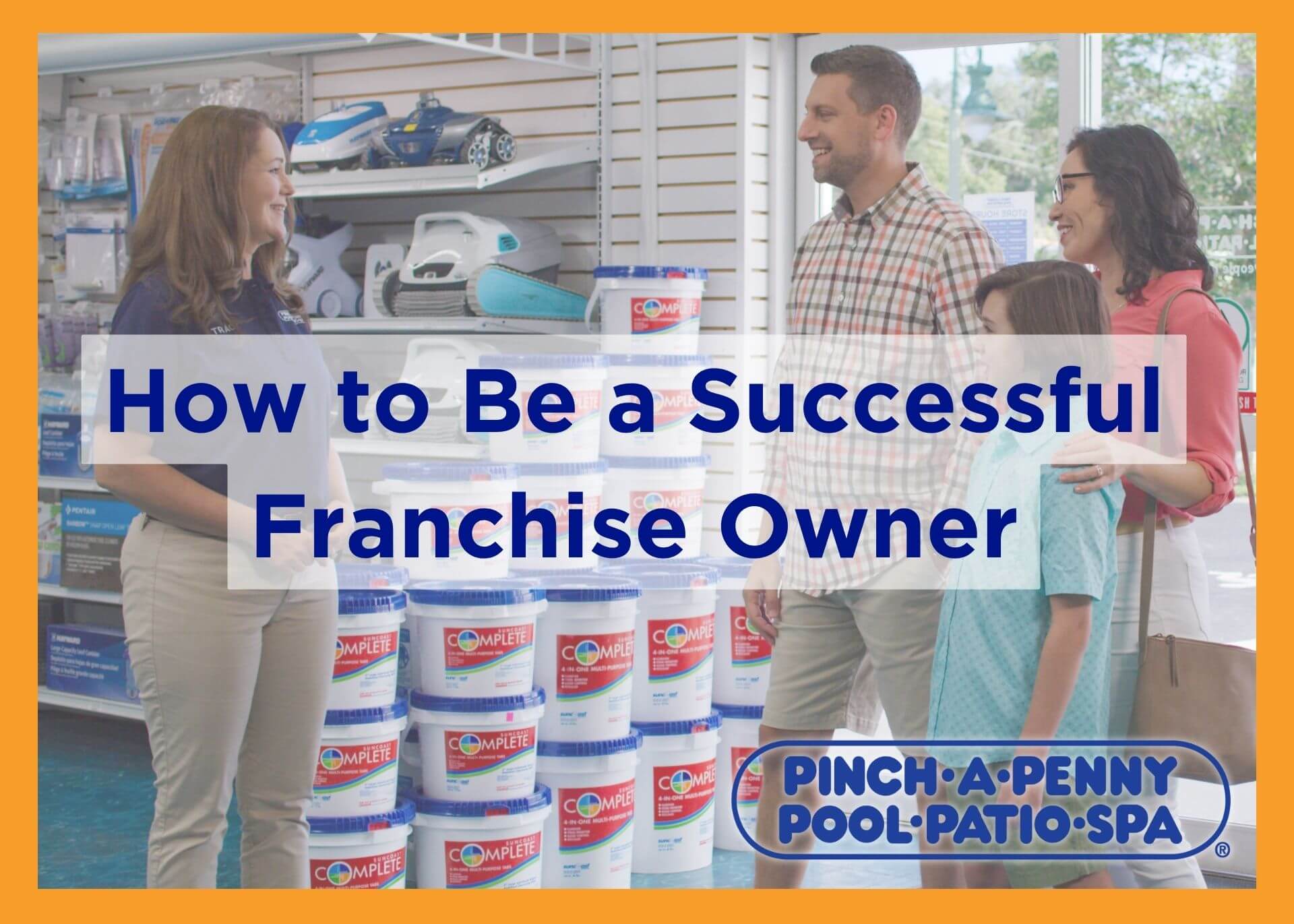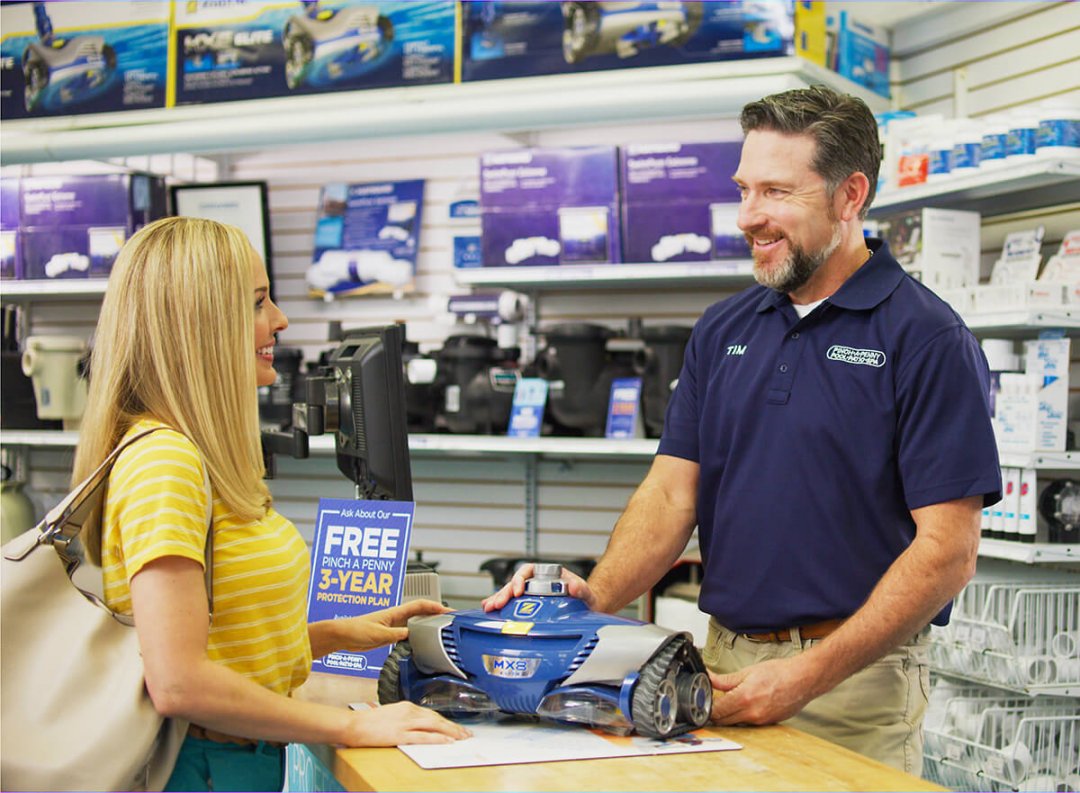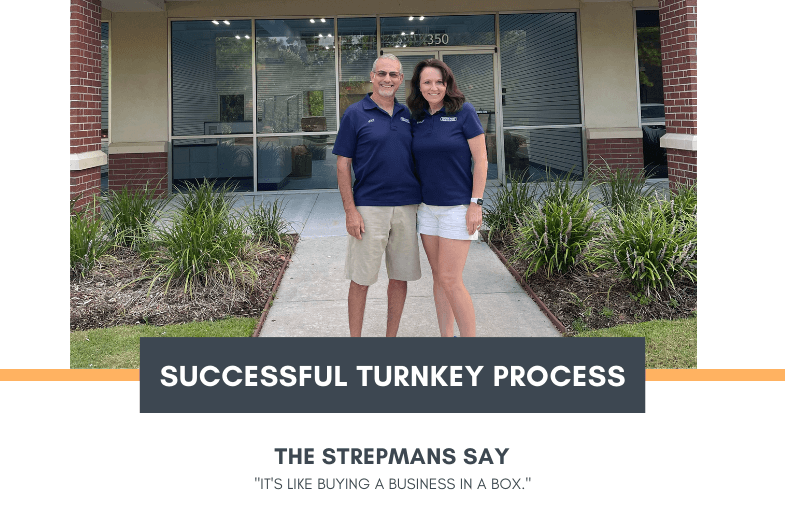What backyard services can a Pinch A Penny pool franchise offer?
Pinch A Penny’s strategic focus on customers’ backyards has helped grow the brand and its franchisees’ bottom lines the right way.
“We are building programs that are complementary additions to the business model,” says Troy Lindbeck, Pinch A Penny’s Vice President of Operations. “We are always looking for services that fit – those that help people enjoy their pool and backyard areas.”
Pinch A Penny’s three-pronged business model includes retail, pool cleaning, and ancillary services, also known as “backyard services.” The ancillary services include power washing, leak detection, pool resurfacing, hardscaping, and building outdoor kitchens. The last ancillary service introduced was landscape lighting, which debuted at Pinch A Penny’s 2020 trade show. Over the next seven months, Pinch A Penny rolled out training, products, and merchandising to support landscape lighting services. Like all ancillary services, it’s up to each individual franchise owner whether they add a new service to their offerings.
The retail operation and pool cleaning are at the core of the business, and Lindbeck says he advises new franchisees to concentrate on those core services first. “At the end of the day, you’re buying a pool store, and the store cleans pools. The ancillary services come later. These are services you don’t have to offer. After you’re established, however, you begin to look for new ways to boost revenues, and the ancillary services can do that.”
How can ancillary services improve my pool franchise opportunities?
Nick Walker has owned the North Lakeland, Florida, store for five years. He began working for a previous owner when he was only a teenager, then worked with the next owner as a college student and became a partner in the business.
Four to five years ago, Walker’s store began offering pressure washing and screening, and since then he has added the installation of pavers for the pool deck and driveway, deck renovation, sanding, and sealing. Earlier this year, he began offering pool remodeling.
These backyard services account for about half of the store’s total revenue. In fact, the store has doubled its growth over the last two years largely because of the revenue from ancillary services.
“We listen to what our customers say they want,” Walker says. “Then we add services that we know people need and that not a lot of people provide. Customers frequently ask who we would recommend for different services, and it’s all stuff we can do. You don’t want to see that money walk out the door.”
Listening to his customers was exactly how Walker got into the screen repair business. “There were not many people in our area who did screen repair. We had people from neighboring cities who would come into the store and give us their cards to hand out. Growth is not always about adding money to the bank. Sometimes it’s just finding out what your customers want and providing that. It’s just good customer service.”
Lindbeck agrees that the smart way to grow the business is to learn the retail and cleaning side, then listen to your customers about which ancillary services they want and need.
“After you’re established, you begin to learn about your customers and neighborhoods and what they want and need,” Lindbeck says. “If a customer is in the store three times per month for supplies, we want to be able to talk about what else we can do for them. After all, you can only sell a person so much chlorine.”
Interested in owning your own franchise?





